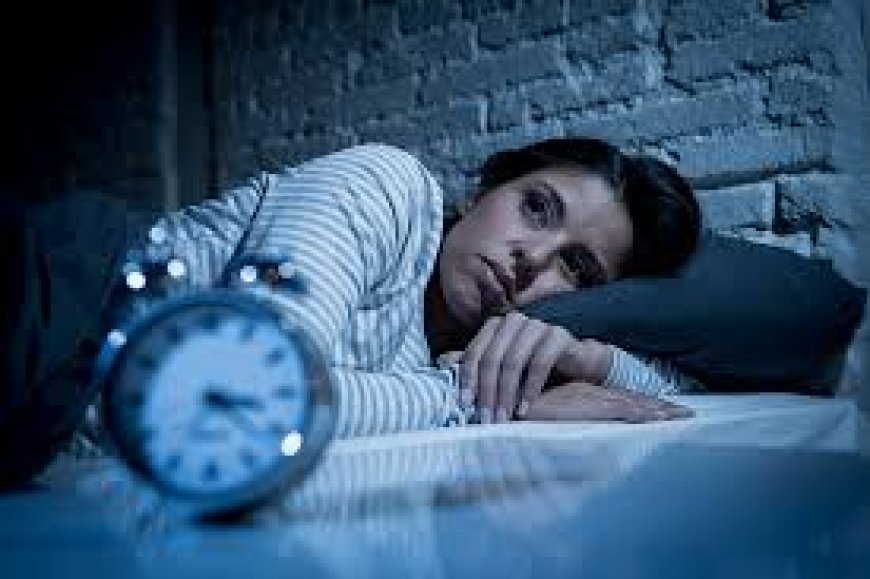From Tossing to Turning: Innovative Strategies to Combat Insomnia

Insomnia is a prevalent condition affecting millions of individuals worldwide. Characterized by difficulty falling asleep, staying asleep, or waking up too early, insomnia can lead to significant daytime fatigue and cognitive impairment. This article explores innovative strategies to combat insomnia, ranging from lifestyle changes to technological advancements.
Understanding Insomnia
What is Insomnia?
Insomnia disorder is defined as a persistent difficulty in sleep initiation, duration, or quality. It can be classified into acute and chronic forms. Acute insomnia lasts for a few days to weeks, often triggered by stress, while chronic insomnia persists for at least three times a week over three months.
Causes of Insomnia
Several factors contribute to insomnia, including:
Worries about work, relationships, or health can keep the mind active.
Conditions like asthma, arthritis, and gastroesophageal reflux can disrupt sleep.
Some prescriptions, including antidepressants and stimulants, can interfere with sleep.
Caffeine intake, irregular sleep schedules, and excessive screen time can all contribute.
Innovative Strategies to Combat Insomnia
1. Cognitive Behavioral Therapy for Insomnia (CBT-I)
Cognitive Behavioral Therapy for Insomnia (CBT-I) is an evidence-based approach that addresses the thoughts and behaviors contributing to insomnia. CBT-I involves:
Understanding sleep cycles and the importance of good sleep hygiene.
Challenging negative thoughts about sleep and reframing them.
Limiting time spent in bed to match actual sleep time, thus consolidating sleep.
Associating the bed with sleep only, not with activities like watching TV or working.
2. Mindfulness and Meditation
Mindfulness practices and meditation have gained popularity for their potential to alleviate anxiety and improve sleep quality. Techniques include:
Visualizing a peaceful scene to promote relaxation.
Focusing attention on different body parts to release tension.
Deep, slow breathing to calm the nervous system.
Studies have shown that practicing mindfulness can significantly reduce insomnia symptoms by enhancing relaxation and reducing rumination.
3. Sleep Environment Optimization
Creating an optimal sleep environment is crucial for promoting restful sleep. Consider the following elements:
Use blackout curtains or sleep masks to block out light.
Keep the bedroom cool, ideally between 60-67°F (15-19°C).
Use earplugs or white noise machines to mask disruptive sounds.
Invest in a quality mattress and pillows to support proper alignment.
4. Technology Solutions
With the rise of technology, numerous sleep aids have emerged:
Applications like Calm or Headspace provide guided meditations and sleep stories designed to help users relax and fall asleep.
Fitness trackers can monitor sleep patterns and provide insights into sleep quality, helping users identify areas for improvement.
These masks often include built-in speakers that play soothing sounds or guided meditations, promoting relaxation.
5. Nutrition and Sleep Hygiene
What you consume can significantly impact your sleep. Consider the following nutritional strategies:
Limit caffeine intake, especially in the afternoon and evening.
Light snacks containing tryptophan, like bananas or yogurt, can promote sleep.
Stay hydrated, but avoid excessive fluids before bed to minimize nighttime awakenings.
In addition, practicing good sleep hygiene is essential. This includes:
Going to bed and waking up at the same time every day helps regulate the body’s internal clock.
Establish a calming pre-sleep ritual that might include reading, gentle stretching, or taking a warm bath.
6. Herbal Remedies and Supplements
Natural remedies can also support better sleep:
Often used for its sedative properties, valerian root may help reduce the time it takes to fall asleep.
This hormone regulates sleep-wake cycles. Taking melatonin supplements can help those with insomnia fall asleep more easily.
Known for its calming effects, chamomile tea is a popular bedtime beverage.
Before starting any new supplement, it’s advisable to consult with a healthcare provider.
7. Physical Activity
Regular physical activity is beneficial for overall health and can improve sleep quality. Aim for:
Activities like walking, running, or swimming can help regulate sleep patterns.
These practices promote relaxation and reduce tension, making it easier to fall asleep.
It's important to time exercise wisely; while morning or afternoon workouts can enhance sleep, exercising too close to bedtime may have the opposite effect.
When to Seek Professional Help
While many individuals can manage insomnia with lifestyle changes and innovative strategies, persistent sleep issues may require professional intervention. Consult a healthcare provider if insomnia:
Is chronic and affects daily functioning.
Is accompanied by other symptoms such as depression or anxiety.
Occurs after starting a new medication.
Conclusion
Insomnia can be a frustrating and debilitating condition, but innovative strategies exist to help manage it effectively. From cognitive behavioral therapy and mindfulness practices to optimizing your sleep environment and leveraging technology, individuals have a wealth of tools at their disposal. By implementing these strategies, many can transition from tossing and turning to restful, rejuvenating sleep. Remember, if insomnia persists, seeking professional help is essential for addressing underlying issues and finding the most suitable treatment.
What's Your Reaction?



















![Safe Abortion pills[[+971521786258]] Doha Qatar/Ar Rayyan Qatar/Umm Salal Mu?ammad Qatar/Al Wakrah](https://news.bangboxonline.com/uploads/images/202501/image_430x256_679bc869b24fb.jpg)

